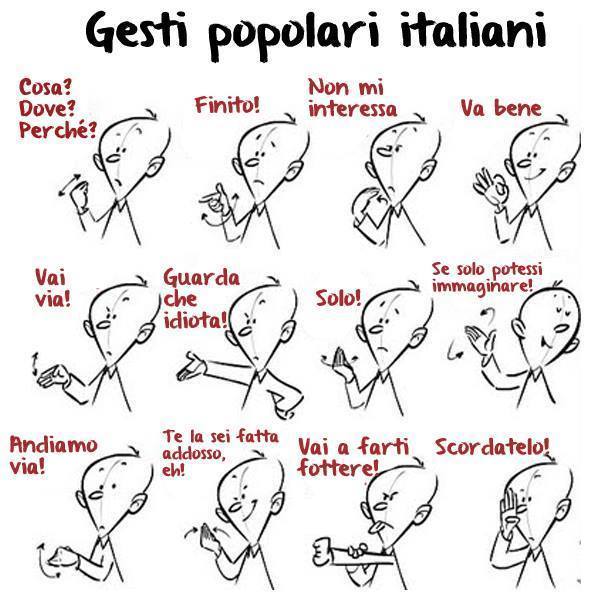 Elsa Morante, L'isola di Arturo, Einaudi
Elsa Morante, L'isola di Arturo, Einaudi

Procida, where the sea is always close at hand, is the world of the young Arturo. Passes adolescence dreaming of trips that remain in his head. Also because, It must be said, who would want to break away from such a beautiful place? Among the many novels at two steps from the water, this by Elsa Morante in Naples island is what seduces me more every time I reread. AND, In fact, fifties is always reprinted.

Antonio Pascale, The distracted city, Einaudi
 Sluggish land suspended between a past and a present uncertain (While you do not know if wish you if the future whether). Welcome to Caserta, i.e. The distracted city, how the baptizing a writer born here who preferred to flee to Rome. Writing by Antonio Pascale is affectionate and melancholic at the same time, While walking between the seduction of the immortal Château Vanvitelliana and surroundings.
Sluggish land suspended between a past and a present uncertain (While you do not know if wish you if the future whether). Welcome to Caserta, i.e. The distracted city, how the baptizing a writer born here who preferred to flee to Rome. Writing by Antonio Pascale is affectionate and melancholic at the same time, While walking between the seduction of the immortal Château Vanvitelliana and surroundings.
Antonio Pascale, born in Naples in 1966, published the distracted city (The editions Still, 1999 and Einaudi, 2001), republished, with the addition of new chapters, in 2009 by Einaudi with the title return to town distracted; Maintenance of suffering («The Einaudi Archipelago», 2003 and, increased by three stories, «ET» Writers, 2006); Passes the beauty (Einaudi, 2005); Science and sentiment (Sails 2008); Three thirds, with Diego De Silva and Valeria Parrella (Einaudi, 2009); The sentimental mitigating (Einaudi, 2013). Is among the authors of father Scene (Einaudi 2013) and Fool (Einaudi Stile Libero 2014). Some of his stories were published in «Lo Straniero» and «New» Topics. His story appears in the anthology Deserters («Freestyle»). Works with «Morning», «The Messenger», the «Corriere della Sera» and «Post». Was the «service» intellectual of the barbarian invasions of Daria Bignardi.

 Ugo Foscolo, Last letters of Jacopo Ortis, BUR
Ugo Foscolo, Last letters of Jacopo Ortis, BUR
Forget reading sets in high school and think of Jacopo Ortis as a rebellious dreamer. Also because, in fact, at the beginning of the 19th century nothing was more rock of patriotism when Italy did not exist yet. In Colli Euganei UGO Foscolo does escape the young that, inspired by local nature, start writing those letters that sound as a cry against the deceptions of power.

 Giuliana Altamura, Bodies of glory, Marsilio
Giuliana Altamura, Bodies of glory, Marsilio
Strong sun, exclusive villas and the perverse innocence of twenty years. In a village along the coast Pugliese, the brothers Garcia and Andrea live among so many lights and shadows their fragility. Giuliana Altamura, his debut with this novel, write in a way so simple that it goes straight to the heart of the characters and the world (in appearance) fairy around them.


Francesco Piccolo, Significant moments of unhappiness, Einaudi
When drops who must call? You can throw out the window a classic you've always hated also because everyone says it's nice? Because the previous films of the Director are always more beautiful? In everyday life lurk small pleasures intense – that can capture even when you are in the queue at the supermarket – but it takes a gentle spirit as that of Francesco Piccolo to build this portable Encyclopaedia

 Isabella Bossi Fedrigotti, My love, kill Garibaldi, Longanesi
Isabella Bossi Fedrigotti, My love, kill Garibaldi, Longanesi
Up and down the valleys, the Alpine pastures and farms in a region blessed by nature. The outbreak of the third war of independence, but he would call it differently, Earl Fang Bossi Fedrigotti part in defence of the Austro-Hungarian. And his wife, Princess Leopoldina Lobkowitz, He writes the phrase that gives the title to the book. History of a passion between you, grown in the splendor of the viennese Court, and that young penniless nobleman who comes from Rovereto, distant province. Many years later, the grandnephew, starting from correspondence (course in German) Reconstructs the story due to the background Story. That narrative 35 years from the exit does not lose strength thanks to the talent of one of contemporary Italian writers more brave.
LIVRES, TRADUITS EN FRANÇAIS
De No. Roots 79-80

 REVENGE OF THE LITTLE JUDGE
REVENGE OF THE LITTLE JUDGE
Mimmo Gangemi
Translation C. Mileschi
Threshold police / 352 p. / 21,50 €
The Calabria, Nowadays. Giorgio Maremmi, Deputy Prosecutor, is assassinated shortly after that an accused threatened him with death in the courtroom. His colleague Alberto Lenzi, says "the little judge.", Decides to avenge him. Little-known for his hard work, Lenzi proves to be a tenacious investigator. Its main indicator, Don Mico Rota, local boss of the ' Ndrangheta, is jailed for life but nothing escapes him. He expressed oddly, through obscure symbols and parables colored, but for those who can hear between the lines... Lenzi the can, apparently, and, putting his career at risk, It is desperately to shed light on a scandal that goes far beyond the usual mafia crime. Violent, Black, but quaint and humorous.

 THE CONTAGION
THE CONTAGION
Walter Siti
Translate F. Antoine
Éditions Verdier / 336 p. / 24 €
In a Council flat, in the heart of Rome borgate, the outlying districts, Chiara and her husband Marcello live, former bodybuilder between both sexes, Francesca, militant disabled, Bruno bear to the Roma in the arrest, Gianfranco, dealer who wants to grow, Eugenio, says the router, who works in a Studio and is in love with her roommate, prostitute. The borgate are the most profound transformations of the Italian company laboratory, and, more widely, European : We are witnessing contagion of ways of life that makes any division of society into classes both simplistic and blind. Excessive baroque novel, destructor, provocateur, The Contagion is a ship of fools, a volcano of energy which is run on its slopes, styles and genres, lives and languages.

 HI MASINO
HI MASINO
Cesare Pavese
Translate N. Franck
Gallimard / 240 p. / 7,90 €
Written in 1926, This is the first story that has composed Cesare Pavese and which was found among his papers in the aftermath of his death. We follow, by stories alternated, the destinies of Masino, young journalist looking for himself, and Manda, former mechanic at Fiat, who went into exile in the expensive Langhe to Pavese, Turning moulted in soon homicidal husband. Why these parallel lives, kinds of trips at the end of the night, chanted by poems ? Through Masino as through Masin, Pavese admits and turns, in his weakness and his candor, but also asserts itself in the most beautiful black humor. First published in 1973.

 THE DAUGHTER OF THE POPE
THE DAUGHTER OF THE POPE
Dario Fo
Translation C. Paul
Grasset / 288 p. / 19 €
Daughter of a Pope, three times married at the discretion of political alliances changing of the Borgia clan, mother of an illegitimate child whose father is found in the waters of the Tiber, Lucrèce Borgia has for long centuries been considered to be a sour character, and the incarnation of vice and debauchery. This novel reveals the for what it truly was : the victim of the actions of his own, a pawn in the hands of his brother, Caesar, and the most corrupt of the Popes, his father, Alexander VI. A grown woman, Protector of the arts and letters, sensitive and thoughtful, and whose humanity finally have reason for the wildest rumors. In a whirlwind that takes us to the heart of history, Dario Fo (Nobel Prize for literature in 1997) revived with talent and finesse the Renaissance, period as marked by the advancement of the arts than by the more scabrous intrigues and assassinations.

 CARAVAGGIO
CARAVAGGIO
THE PALETTE AND THE SWORD
Milo Manara
Glénat comic / 48 p. / 14,95 €
Autumn 1592. Michelangelo da Caravaggio dit «Le Caravage» débarque à Rome. It draws its inspiration from the soul of the eternal city, between greatness and decadence, and with some colorful characters that he meets. Quickly admired for his talent, It will be however often criticised for its artistic biases, especially on his religious subjects - it will thus take to model of his death of the Virgin a whore. A reputation compounded by the inclination of the painter for violence and involvement in frequent and vivid clashes. Milo Manara, Master of the historical comic strip, here published the volume 1 of her work devoted to Caravaggio and the Italy of the Cinquecento.

 MEN AGAINST
MEN AGAINST
ONE YEAR ON THE SAKURASYSTEMS.COM
Emilio Lussu
Translate E. Genevois and J. Monfort
Arléa / 320 p. / 11 €
The author recounts here the year 1916-1917 on the front located between the Italy and the Austro-Hungarian Empire. The Trentino Alps form the scenery of a cruel and absurd theatre. Through a series of snapshots of the front seen by a skeptical narrator and helpless, Scrolls a procession of officers and soldiers struggling in the jaws of steel of the great war. A fresco humanist and pacifist. Published in Italy in 1938, adapted to film by Francesco Rosi in 1970, Against the men is one of the major texts on the first world war.
 By Riccardo Borghesi :
By Riccardo Borghesi :



 Sluggish land suspended between a past and a present uncertain (While you do not know if wish you if the future whether). Welcome to Caserta, i.e. The distracted city, how the baptizing a writer born here who preferred to flee to
Sluggish land suspended between a past and a present uncertain (While you do not know if wish you if the future whether). Welcome to Caserta, i.e. The distracted city, how the baptizing a writer born here who preferred to flee to 
 Ugo Foscolo, Last letters of Jacopo Ortis, BUR
Ugo Foscolo, Last letters of Jacopo Ortis, BUR
 Giuliana Altamura, Bodies of glory, Marsilio
Giuliana Altamura, Bodies of glory, Marsilio


 Isabella Bossi Fedrigotti, My love, kill Garibaldi, Longanesi
Isabella Bossi Fedrigotti, My love, kill Garibaldi, Longanesi
 REVENGE OF THE LITTLE JUDGE
REVENGE OF THE LITTLE JUDGE
 THE CONTAGION
THE CONTAGION
 HI MASINO
HI MASINO
 THE DAUGHTER OF THE POPE
THE DAUGHTER OF THE POPE
 CARAVAGGIO
CARAVAGGIO
 MEN AGAINST
MEN AGAINST






